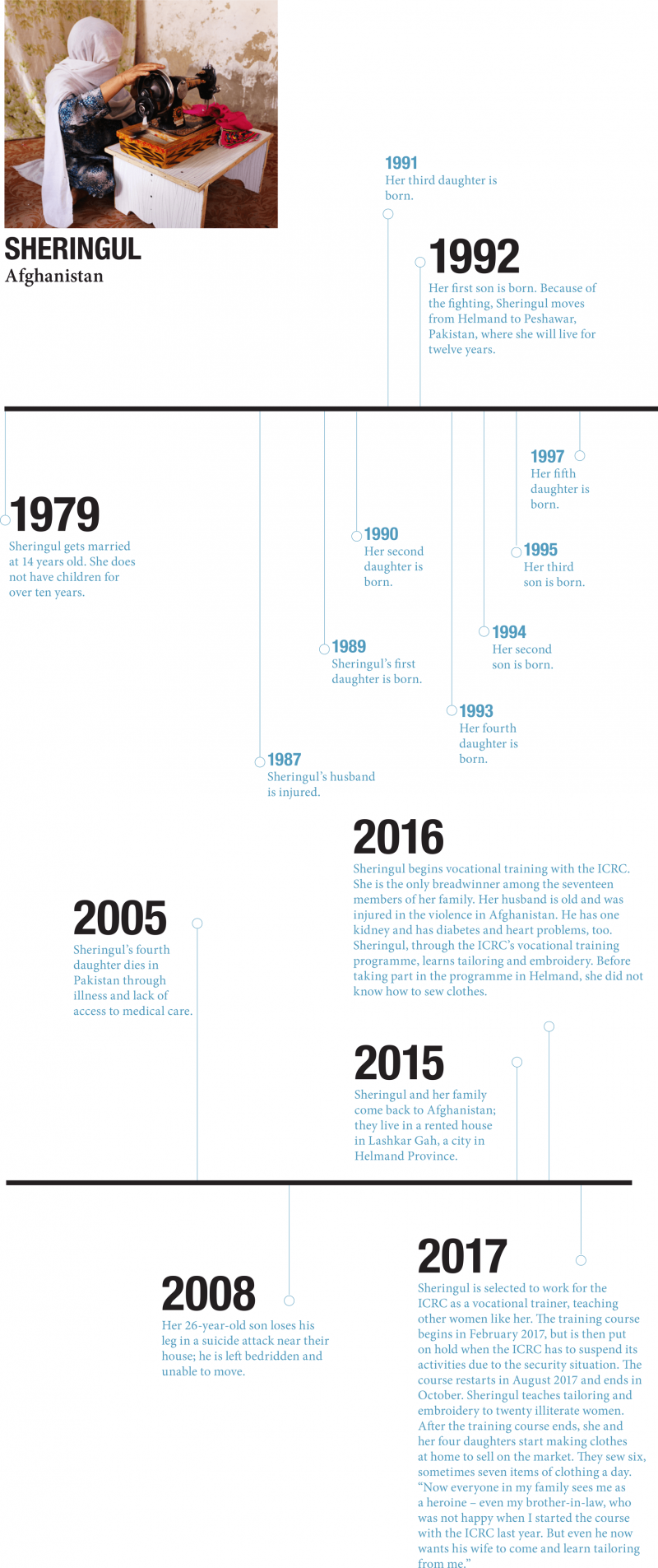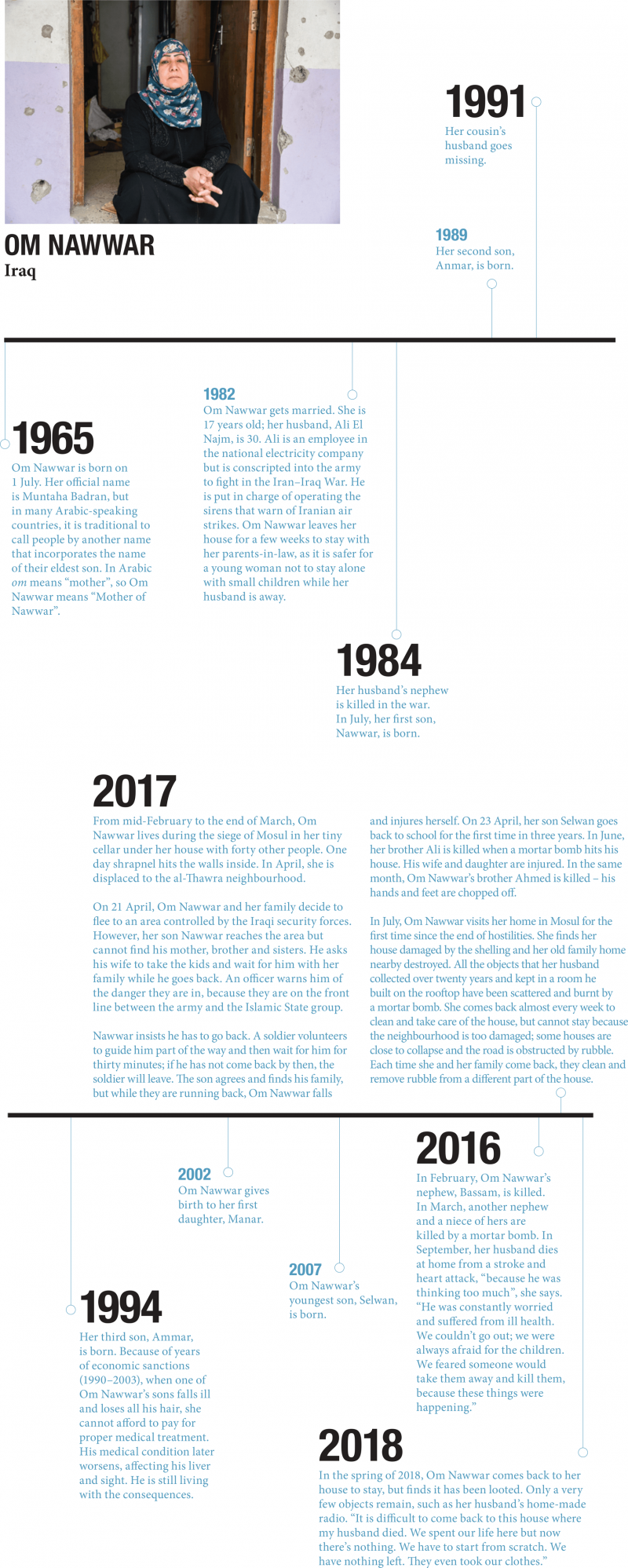Stretched: Protracted conflicts and the people living in the midst of it all
Situations of protracted armed conflict, whether one armed conflict or a succession of several armed conflicts over a long period of time, subject the affected population to both short-term and long-term effects of warfare. Below are two timelines tracing the experiences of two women during situations of protracted conflict in two countries: Sheringul in Afghanistan, and Om Nawwar in Iraq.1 Their experiences show that life continues in such contexts, despite violence and instability.
Iraq has experienced violence for more than fifty years; the International Committee of the Red Cross (ICRC) has been working in that context since 1980. Afghanistan has experienced violence for more than forty years; the ICRC has been working there since 1978.
Humanitarian organizations need to take into account the needs of populations affected by protracted conflict. Ultimately, however, only political solutions will bring an end to the violence and destruction.2


